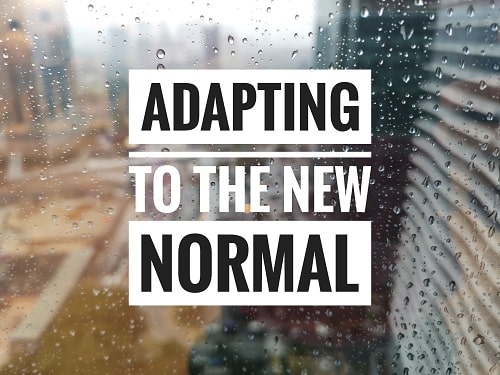As another pandemic-stricken year comes to an end, one question remains—will things go back to the way they were, or is the new normal here to stay? There are plenty of things that prove to be uncertain at this point, but if there’s one thing that COVID-19 has taught everyone, it’s that standard healthcare practices can go a long way in taking care of ourselves and the people around us.
Now that everything is almost going back to how it was, it’s safe to say that the pandemic has changed different aspects of everyone’s lives. Even as the virus eventually runs its course, the new habits that emerged during this time will most probably remain. If you’re wondering what those are, here’s a quick rundown of what you can take note of:
-
The Effort To Keep Up With Manufacturing Medical Supplies
It’s no secret that the people in charge had not prepared the medical industry as much as they should’ve when the pandemic hit. There was immediately a shortage of medical supplies, from mechanical ventilators to ICU beds, personal protective equipment (PPE,) and N95 masks. Even the production of over-the-counter medicines for colds and flu was on the verge of scarcity, which only worsened the fear and panic among consumers. To cite an example, a law firm emphasized this shortage in an article they wrote. They mentioned that the lack of medical supplies had increased exposure for healthcare professionals, resulting in the further decline of those who treat patients.
Fortunately, the medical industry seems to have learned from this. As the world moves forward, it can expect healthcare supply companies to step up in preparing for the worse. This practice might not completely prevent another pandemic, but the people can hopefully be more ready and equipped to face one should it come again in the future.
-
Handwashing Is Here To Stay
No one can ever be too sure when it comes to health and safety. That said, most people will likely continue washing their hands religiously, even in a post-COVID era. It would be best to keep this practice in mind because, virus or no virus, handwashing is always a part of any routine.
Committing to at least 20 seconds of meticulously scrubbing and soaping your hands and arms is good enough. If you need a timer, experts suggest humming the ‘Happy Birthday’ song twice from start to finish.
-
Face Masks Are The New Normal
Even when wearing face masks becomes voluntary soon, some people might still use them for added protection in public. Social distancing may not be that possible anymore, especially when attending concerts or events. Still, you can somehow be relieved that you’re safe from contracting any virus if you wear a mask.
This habit will most likely be prevalent when riding public transit, going to work, and attending school. Besides, what’s a slight inconvenience if it can give you an extra layer of protection and peace of mind?
-
Prioritizing Mental Health
Quite understandably, the pandemic saw a drastic decline in the mental health of most individuals all over the world. Before the crisis, people were comfortable doing mundane things like socializing, eating out, and attending parties and events. But when almost all government bodies implemented lockdowns, no one saw the consequences coming. Some people didn’t know how to deal with self-isolation, leading to the rise of mental health conditions that were difficult to face, to begin with.
As things go back to how they used to, mental health will probably be among the top priorities among families, workplaces, and educational institutions. That’s because there is nothing more important than a healthy body. Aside from mental health, most people will likely take their physical wellness more seriously too. Getting adequate sleep and exercise is just one of the simple things we can do to better take care of ourselves. Self-care will be a trend, and being kinder to our minds might emerge as a new positive habit post-COVID.
Final Words
COVID-19 has changed people’s lives in more ways than one. The way different countries prioritize healthcare has evolved because of it, and the next best thing to do is to keep practicing the good habits you’ve learned along the way. Remember that it’s always best to prepare for what’s to come because there is no telling when the pandemic will be over or if there’s a new one coming soon. But what you can do to assure the health and safety of yourself and your loved ones is by adopting these essential practices into the new normal.



















